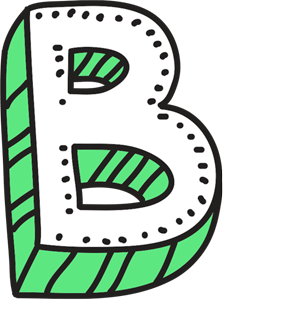You can search for anything linked to emotional well‑being in our handy A-Z guide.


-
Bereavement
Bereavement is the feelings and changes that go with loss that person goes through when someone dies or is removed from someone’s life. It could be someone very close, someone we know or someone might never have met a person but they feel affected by what has happened.
Bereavement affects people in different ways: we can feel all sorts of feelings from anger, denial (not believing it happened or acting like it did / not being willing to talk about it), self-blame, grief, stress, depression, anxiety, relief or happiness. We can want to stay in and see no one, go out and party, or go on self-destruct.
There are no wrong or right ways to feel when you have lost someone.
Losing someone can be one of the hardest things in life to deal with losing someone and so learning a bit about bereavement and what helps could help a person.
For more information on bereavement and loads of information on things and places that might help you can visit the Young Peoples Bereavement Pages
This site Hope Again, made by young people who have been bereaved might also be really useful. As well as all the good information there is also a helpline for young people who have lost someone.
-
Bipolar Disorder
Bipolar disorder affects moods.
A person living with BD may have extreme moods swings, going from super excited, up for it, and positive to the most miserable, withdrawn and depressed. This change can happen hour-to-hour or year-to-year.
When a person is feeling on top of the world they may commit to all sorts of things, make unrealistic plans, or start a million different projects. They may feel so carefree they get involved in risky relationships or choices.
During the low times the person may feel crap about themselves, life and their past actions and decisions. They often find it hard to see others, feel positive, do things, or care for themselves. Sometimes people with Bipolar disorder can also experience psychosis (this is when they see or hear things that aren't real).
The word “episodes” is often used to describe these ‘up’ and ‘down’ times, which can be brought on by stress or difficult life events, or can sometimes happen with no explanation at all.
Bipolar Disorder used to be called manic depression.
You can read Rachel’s Story, and learn more about Bipolar and how to manage it here
For more information on Bipolar please visit NHS or Headmeds.
-
Body Dysmorphia / Body Dysmorphic Disorder
Body dysmorphic disorder (BDD) is an anxiety disorder related to body image. It causes a person to have a distorted view of how they look and to spend a lot of time worrying about their appearance.
For example, they may be convinced that a barely visible scar is really obvious and that everyone is staring at it, or that their nose looks abnormal. They may obsess about one area of their body or about a number of different areas.
Having BDD does not mean the person is vain or self-obsessed. Lots of people are worried about their appearance at times. For someone with BDD these worries do not go away and can have a significant impact on their daily life.
A person with BDD may spend a lot of time trying to conceal or cover up whatever they see as a problem area, they may become anxious in social situations or avoid them completely. They may also have some obsessive behaviours such as brushing their hair excessively, picking their skin a lot to make it smooth or always looking in mirrors. Someone with BDD may also seek out plastic surgery.
If someone is feeling this way it can really help to talk.
-
Body Image
Your body image is how you think and feel about your body and how you look. It can have a big impact on how you deal with people in day-to-day life, how confident or happy you feel, your relationships and your overall self-image.
Society and the media can make us feel under pressure to look a certain way. Even though we know they are fake, the photoshopped images and pictures we see can really affect how we see ourselves, and make it difficult to feel ‘good enough’, or comfortable in our own skin.
It’s not just the media that affects people's body image – the experiences, beliefs and aspirations a person has as well as the influence of friends, family and other people they encounter plays a big part in how a person feels about how they look.
You can take a quiz at The Mix to see how healthy your body image is, and find out more information at Be Real.
-
Bulimia
Bulimia is an eating disorder where someone might eat loads of food at once and then try and get that food out of their body by being sick or taking laxatives. Like all eating disorders it’s a way of coping with difficult feelings by using food.
-
Bullying
Bullying is a repeated behaviour which is intended to hurt someone either emotionally (their feelings) or physically (their body). It may be aimed at someone because of their race, religion, gender, sexuality, disability or other aspects of their lives such as how they dress, where they live or what they look like.
There are many different types of bullying such as teasing, name calling, physical threats of violence, cyber (online) bullying. It can happen anywhere such as in school, on the bus or in the workplace and can include things like damaging your stuff, stealing your money, taking your friends away from you, posting rumours about you or pictures of you online or sending you offensive texts.
It is never OK to bully someone. Bullying can be very upsetting and can even lead to people feeling depressed or hurting themselves. People often say the best thing to do to bullies is to ignore them and they will go away but this isn’t always possible. Lots of people find that telling a person in authority such as a teacher, parent or employer can be really helpful…
If someone bullies someone this can also be alarming and affect how they see themselves and can be a difficult thing to face – it can also get them into trouble. It can help to talk to someone about it.
To find out more about bullying visit Bullying UK







If you still have unanswered questions, you can go to a service in your area for information & advice:



























